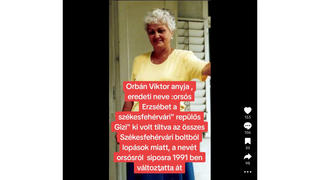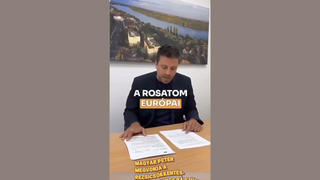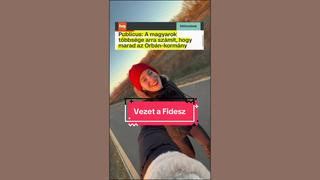
Did immigrants in Germany complain in a documentary by the German broadcaster Deutsche Welle that white-skinned bureaucrats decided on their asylum applications? No, that's not true: The complaint is based on an incorrect translation of the English version of the video. Neither of the two immigrants interviewed for this video complained in this way, and neither of them applied for asylum.
The claim appeared in a Hungarian post (archived here) on TikTok on December 15, 2023, under the title (translated from Hungarian to English by Lead Stories staff) "The migrants don't like the fact that white people are working in the office!" It was posted by David Filep, who works under the pseudonym A kopasz oszt (The bald guy shares) at the Megafon Center, which produces social media content in support of Hungary's ruling party, Fidesz. Filep said (as translated):
Now, this really blows a fuse! Migrants in Germany don't like the fact that white people are adjudicating their applications for asylum! ... The German public broadcaster made a totally absurd video in which they discuss how hard it is for migrants to get into Germany through the bureaucracy created by whites.
This is what the post looked like on TikTok at the time of writing:
(Source: TikTok screenshot taken on Tue Dec 19 14:53:34 2023 UTC)
Filep presented a clip from Deutsche Welle titled "Behördendschungel - Migranten und die deutsche Bürokratie" (translated by Lead Stories as "The Maze Of Authorities - Migrants And German Bureaucracy"), released on November 11, 2023. Yairan Montejo, a Cuban citizen, talks in the video about the hurdles he had to overcome when applying for permanent residency in Berlin. In the English-language version of Montejo's original soundtrack, it says:
The waiting and the way people speak to you don't make you feel welcome.
Filep's Hungarian subtitles read (as translated):
The waiting and the fact that white people speak to you doesn't give me a good feeling.
It appears Filep misunderstood the words "the way people speak to you" as "the white people speak to you." Based on the comments on the TikTok post, many viewers took his translation at face value.
Lead Stories reviewed both the above-mentioned German version of Deutsche Welle's video and its English version. Neither Montejo nor any other person who appears in the piece complains about the German immigration bureaucrats' skin color.
Moreover, neither of the two would-be immigrants featured in Deutsche Welle's documentary were seeking asylum, which the United Nations High Commissioner for Refugees defines as "the right to be recognized as a refugee and receive legal protection and material assistance." Montejo was applying for permanent residence in Germany after divorcing his German wife, with whom he legally came to Germany eight years ago, according to the video. Catalina Fajardo of Columbia was applying for a work permit to teach in kindergarten, the video says.
According to Human Rights Watch, Fidesz has been "whipping up negative and hostile sentiment against asylum seekers and migrants" through PR campaigns that portray migrants as "dangerous to Europe's future." At the time of writing, the Hungarian government accused the European Union of building "migrant ghettos" in Hungary in its 2023 National Consultation survey.
















